Interdisciplinary [in-ter-dis-uh-pluh-ner-ee]: Adjective: Involving two or more academic, scientific, or artistic disciplines
SEE ALSO: BASIS Independent Silicon Valley
Everything taught on BASIS Independent Silicon Valley‘s campus may be traced back to the concept of interdisciplinary study. Our students are taught how to ask questions and think critically. They are steeped in history and the English language. They are strong writers who are well positioned to articulate new understandings in order to address consequential real-world issues. There exists no better example of our predilection towards interdisciplinary connections than the trip we took to the Galàpagos Islands with our students to investigate the wonders outside of the classroom.
“The BASIS Curriculum is designed to quench the desire for historical knowledge and teach students how to appreciate the arts,” said Dr. Anu Murthy, a biology teacher at BASIS Independent Silicon Valley. “That is in addition to developing an inquisitive and analytical mind through a rigorous program infused with science and math courses. This Galàpagos Islands trip created an open and exciting classroom that helped the students learn by experience and observation — just as Darwin did hundreds of years ago!”
At the end of the 2016-2017 academic year, BASIS Independent Silicon Valley sent four instructors and 26 students to the Galàpagos Islands during our Term Project Week. We assembled a mighty team of intrepid faculty: a team which would take the task at hand seriously, but also be willing to allow the awe of the Galàpagos Islands to usher in new perspectives. In very general terms, we brought along two biology teachers and two history teachers. In actuality, we assembled an interdisciplinary team with whom any UNESCO World Heritage site would have been pleased to work!
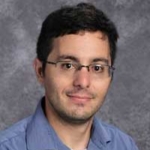 “The trip was a brilliant extension of what I try to do in my classroom every day—demonstrate how different systems of knowledge are interconnected and rooted in specific times and places of their production.”– Mr. Bryan Meyerowitz
“The trip was a brilliant extension of what I try to do in my classroom every day—demonstrate how different systems of knowledge are interconnected and rooted in specific times and places of their production.”– Mr. Bryan Meyerowitz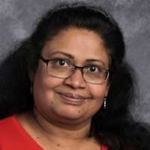 “To a biologist, this trip is like a pilgrimage to Mecca, the holy site, the birthplace of a fundamental theory that explains the mystery behind the diversity of life. I wanted to walk with my students in the footsteps of Darwin, see what he had observed, and ponder how the idea of natural selection crystallized in his mind.” — Dr. Anu Murthy
“To a biologist, this trip is like a pilgrimage to Mecca, the holy site, the birthplace of a fundamental theory that explains the mystery behind the diversity of life. I wanted to walk with my students in the footsteps of Darwin, see what he had observed, and ponder how the idea of natural selection crystallized in his mind.” — Dr. Anu Murthy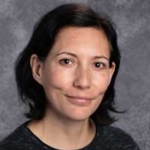 “The Galàpagos trip was an ideal study abroad experience for BISV students – both for its educational centers and natural conservancy organizations.”– Dr. Rachel Van Dusen
“The Galàpagos trip was an ideal study abroad experience for BISV students – both for its educational centers and natural conservancy organizations.”– Dr. Rachel Van Dusen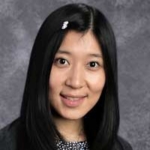 “The Galàpagos is where the understanding of evolution started. It is the place that inspired Darwin’s theory of natural selection, and a lot of what we know about biodiversity. As a biology teacher, this is the trip I’ve always wanted to go on, to witness the content that I teach every day.” — Ms. Viva Zhao
“The Galàpagos is where the understanding of evolution started. It is the place that inspired Darwin’s theory of natural selection, and a lot of what we know about biodiversity. As a biology teacher, this is the trip I’ve always wanted to go on, to witness the content that I teach every day.” — Ms. Viva ZhaoMs. Zhao said that one of the reasons she was so interested in being a part of this adventure was because “we have so many kids at BASIS Independent Silicon Valley who aspire to become the next generation of doctors and biologists. However, learning about all of this in the classroom is completely different from seeing the Galàpagos Islands up close.” One can hardly think of discussing the Galàpagos Islands without a specific person coming to mind. Of course, as mentioned several times already, that person is Charles Darwin, a man whose life’s work embodied the very definition of interdisciplinary study. He was equal parts biologist, geologist, writer, journalist, cartographer, and anthropologist. The Galàpagos Islands that he studied represent diversity, and not just diversity of species but diversity of inquiry and understanding.
Like our students, Darwin understood that empiricism required an attentive detail-oriented approach to the collection of data. It also required imagination. BASIS Independent Silicon Valley insists on dedication to study, and the space to wonder. Darwin agrees. “A man who dares to waste one hour of time has not discovered the value of life,” he once asserted.
Just how perfectly do the Galàpagos Islands connect to BASIS Independent Silicon Valley? Dr. Murthy is happy to explain. “The moment we landed in the beautiful city of San Francisco de Quito to begin our adventure to the Galàpagos, we started living the BASIS Curriculum. Whether it was practicing our Spanish language skills, learning the historical significance of the Inca Civil War and the arrival of the Spanish conquistadors, or visiting the colonial historical center or the ornate churches in Quito, students had a chance to physically experience the facts they glean from their textbooks.”
In order to cultivate global thinkers who are critical and adaptable, analytical and compassionate, BASIS Independent Silicon Valley faculty helps students make interdisciplinary connections between content areas, extracurricular activities, and community endeavors. Indeed – that is an essential goal of the BASIS Curriculum: our teachers collaborate vertically from grades 5-12 as well as horizontally in math, science, and humanities courses to promote cross-disciplinary skills that students apply inside and outside of the classroom. One might say that there is nowhere on earth that fosters such imagination; it’s only in schools like ours, and our many sister schools in the BASIS Curriculum Schools network.
Dr. Van Dusen was quite taken with the ecological research opportunities on the islands. “The Darwin Research Center, the Interpretation Center, and management organizations such as the Galàpagos National Park Directorate promote biodiversity and engage in actions that counteract the negative effects to the ecosystem due to the introduction of foreign invasive species,” she said. “By interacting with the research that Galàpagos field experts are conducting in real time, BASIS Independent Silicon Valley students can explore their own research interests and help educate their communities back home about conservation.”It wasn’t all work in the Galàpagos Islands, and even during the structured activities, there was a lot of fun to be had. Some rain-soaked hiking was done, but not just your standard hikes. In fact, the team hiked up a volcano during a rainstorm on the island of Isabela: truly the stuff that ‘bucket lists’ are made of. The team also visited many landmarks in Ecuador, including the equator. They snorkeled with sea lions and reef sharks, and they took speed boats between the islands.
The teachers who accompanied the group noticed how inspired our students were by the local guides — Christian, Valerio, and Marco. They also noticed how intrigued our students were with the culture of the islands, and how they enjoyed spending time at the outdoor market in Otavalo. The guides introduced our research team to their families, which further cemented the kinship that a lot of the group felt after spending so much time together, learning about grassroots conservation, and discussing the importance of protecting the stunning ecosystem of the islands. “On the trip, we became one family, eating, and adventuring together,” Dr. Murthy mused about all of their time spent together.
“In many ways, the Galàpagos Islands – and the stories Darwin and others tell of speciation and natural selection at work on the islands – provide a reference for the labyrinthine world of ideas that make up our various curricula,” Mr. Meyerowitz said. “Our students classify, organize, and relate these ideas to one another within and between classes.” In their own way, the Galàpagos Islands parallel the development of the human intellectual experience, and resonate with our approach to education.
“Our students go from class to class learning how advanced disciplines connect to each other,” said BASIS Independent Silicon Valley Head of School Toby Walker. “They are contextualizing expertise. They fully understand that you simply cannot have a biology class without a history class or vice versa. They cannot and do not exist in isolation.”
By working with teams of subject experts, students learn to pose their own complex inquiries, develop methods for data collection, and push classically-held academic boundaries to search for that new thing that could change it all. Our students got a glimmer of what that means, in a place where Darwin ‘changed it all’ two centuries ago. Perhaps, a critically thinking student will someday forge a 21st century complement to the theory of natural selection? Innovation is driven by people who are drawn to improvement, and are comfortable affecting the necessary change. At BASIS Independent Silicon Valley our students are on this path: they critically assess and analyze information because they have a voracious appreciation for learning and a deep understanding of a wide variety of subjects.
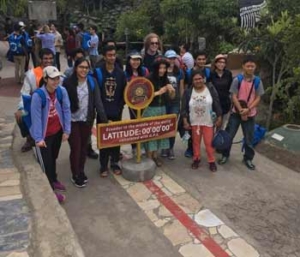
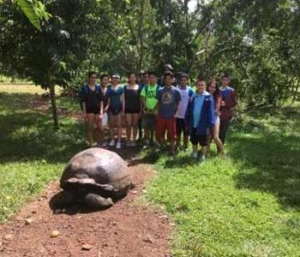
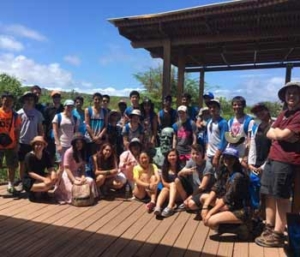
Meredyn Shapiro has been a member of the BASIS Independent Silicon Valley administration and community since early 2015. Ms. Shapiro joined the school as the Associate Director of Admissions, and is now the Director of Communications.